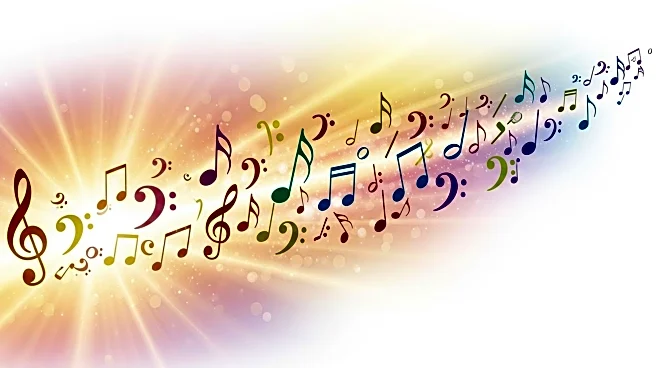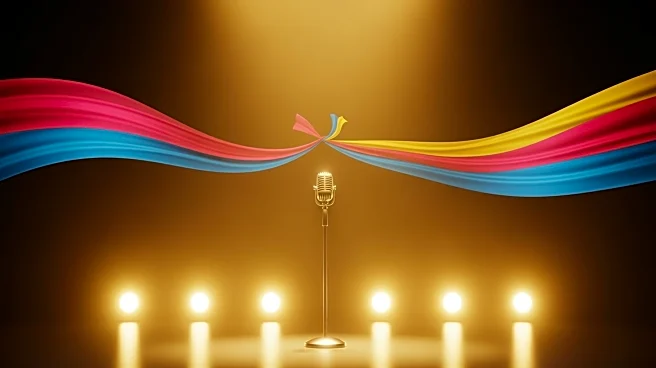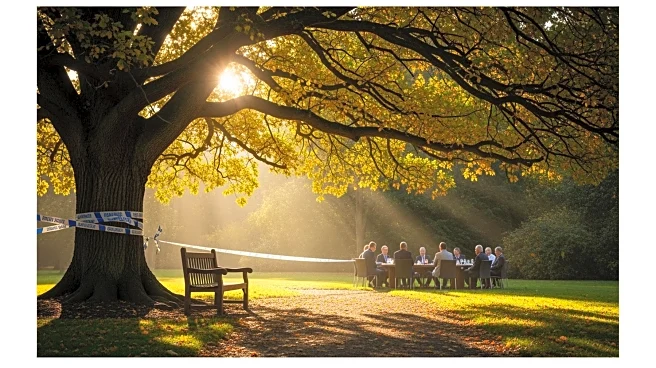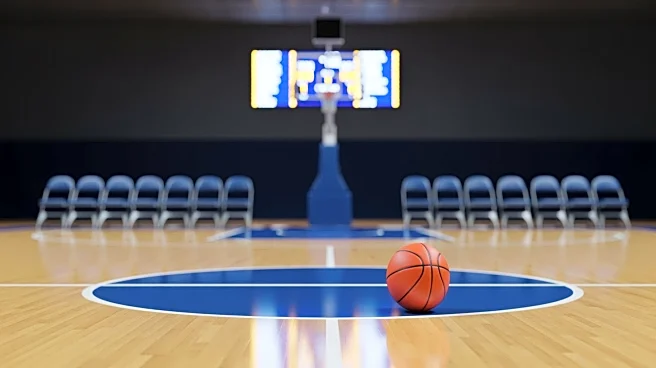What is the story about?
What's Happening?
The Sacred Harp songbook, a cornerstone of American Christian music tradition since 1844, has been updated to include 113 new songs, reflecting a new generation of composers and singers. The recent convention in Atlanta saw over 700 participants from various backgrounds, including Baptists, Quakers, Catholics, and atheists, celebrating the book's revision. Notably, the update includes contributions from diverse composers such as Deidra Montgomery, the first Black composer, and José Camacho-Cerna, the first Latino composer. The event highlighted the growing inclusivity within the Sacred Harp community, with more young, LGBTQ+, and non-religious individuals participating.
Why It's Important?
The update of the Sacred Harp songbook signifies a shift towards greater inclusivity and diversity within a historically traditional music community. By incorporating works from composers of varied backgrounds, the songbook reflects broader societal changes and the evolving demographics of its participants. This inclusivity may encourage more people to engage with the tradition, fostering a sense of community and acceptance. The presence of younger singers and composers suggests a revitalization of interest in Sacred Harp music, ensuring its continuity and relevance in contemporary culture.
What's Next?
As the Sacred Harp community continues to grow and diversify, future revisions of the songbook may further reflect these changes. The increased participation of younger generations and individuals from diverse backgrounds could lead to new musical styles and interpretations within the tradition. Additionally, the community's openness to non-religious and LGBTQ+ members may inspire similar inclusivity in other traditional music circles. The next revision, expected in several decades, will likely continue this trend, potentially introducing even more varied compositions.
Beyond the Headlines
The evolution of the Sacred Harp songbook highlights broader cultural shifts towards inclusivity and diversity in American society. The acceptance of LGBTQ+ and non-religious individuals within a traditionally Christian music tradition reflects changing attitudes towards identity and community. This development may influence other cultural and religious practices, encouraging them to embrace diversity and adapt to contemporary values. The Sacred Harp's ability to unite people across different backgrounds through music underscores the power of art as a universal language.

















